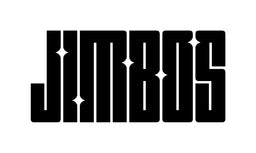The Ultimate Guide to Washing & Detailing Your Car at Home
Washing your car at home can be simple and fun — but done the wrong way, it’s one of the easiest ways to scratch and dull your paint. The good news? With the right soaps, towels, and techniques, you can safely wash and detail your car at home without swirl marks or streaks. This complete guide walks you through every step of the process and links to 25+ supporting deep dives on specific car washing topics.
Start With the Right Soap: The Super Soaper
Safe washing starts with safe soap. The Super Soaper is ultra-slick, pH-balanced, and designed for semi-touchless washing. It protects wax, sealants, and ceramic coatings while lifting dirt and grime safely. It’s the #1 choice for pros and DIYers alike.
Table of Contents
Why Washing Your Car the Right Way Matters
Most scratches, swirls, and dullness come not from driving — but from improper washing. Using dish soap, dirty sponges, or automatic car washes can permanently damage clear coat. That’s why choosing the right soap, tools, and method is critical to keeping your car looking new.
Essential Tools & Products
- The Super Soaper – safe, slick foam soap
- Orange Wash Microfiber Towels – contact washing
- Massive Drying Towel – streak-free drying
- Tough As Shell Ceramic Spray – protection
- Pure Magic Cleaner – wheels & tires
- All Dressed Up – trim & tire dressing
Step-by-Step Car Washing System
- Pre-rinse: Remove loose dirt with a hose or pressure washer.
- Pre-foam: Apply The Super Soaper through a foam cannon or sprayer, let dwell, rinse.
- Wash: Use multiple microfiber towels, flipping often, for safe contact washing.
- Wheels & Tires: Clean separately with Pure Magic Cleaner and brushes.
- Rinse: Use a sheeting rinse to pull water off panels.
- Dry: Blot with the Massive Drying Towel; use a blower for crevices.
How to Dry Without Scratches
Improper drying is one of the biggest causes of swirls. Use plush microfiber drying towels and avoid bath towels or chamois. For extra safety, pair drying with a blower.
Protecting Your Paint
After washing, always reapply protection. Tough As Shell ceramic spray is the fastest way to lock in shine and hydrophobic protection for months at a time.
Special Cases: White, Black, and Winter Washing
Different conditions require different strategies:
- Black cars: prone to swirls, need extra lubricity.
- White cars: watch for stains and yellowing.
- Winter washing: salt removal is critical.
Eco-Friendly Washing Options
Save water with waterless and rinseless washes, or opt for eco-friendly soaps that reduce environmental impact.
Building the Best At-Home Setup
Want pro-level results? Build your garage setup with foam cannons, grit guard buckets, microfiber storage, and blowers. See our full guide: The Best Car Wash Setups at Home.
Supporting Guides (25 Deep Dives)
- Best Car Wash Soap
- How to Wash Without Swirl Marks
- Best Way to Wash a Black Car
- Two Bucket vs Modern Methods
- Touchless Car Washing
- Best Car Wash Mitts & Towels
- How to Wash in Direct Sunlight
- DIY vs Professional Car Wash
- Best Car Wash for Ceramic Cars
- Car Wash Mistakes
- How Often Should You Wash?
- Best Foam Cannon Soaps
- Waterless vs Rinseless
- How to Wash in Winter
- How to Wash Wheels & Tires
- Best Drying Towels
- How to Wash at an Apartment
- Top 20 Car Washing Hacks
- How to Wash After Road Salt
- Best Budget Car Wash Products
- Car Wash Soap vs Dish Soap
- Automatic vs Hand Wash
- Best Way to Wash a White Car
- Eco-Friendly Car Washing
- Best Car Wash Setups at Home
FAQ
What’s the safest way to wash at home?
Pre-foam with The Super Soaper, wash with multiple microfiber towels, rinse with sheeting, dry with the Massive Drying Towel, and protect with Tough As Shell.
Do I really need special soap?
Yes — dish soap strips protection and dries trim. Car wash soaps like The Super Soaper are pH-balanced and paint-safe.
How often should I wash my car?
Once a week is ideal. In winter or salty conditions, every 3–4 days.
What’s the best drying method?
Use a Massive Drying Towel with blotting, and a blower for crevices to prevent water spots.



